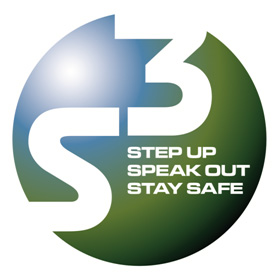Environment, health and safety
We are committed to fostering a culture of continuous improvement to maintain the highest environment, health and safety (EHS) standards and to stand out as a world-class partner and employer of choice. We strive to integrate EHS excellence into our culture as we enable employees to deliver innovative products for patients worldwide. This starts with our S3 policy that helps us empower employees to ‘Step Up, Speak Out and Stay Safe’. Applying an organized, methodical approach, we are able to promote awareness and dialogue at every level.
A social and environmental responsibility policy
Environment, Health and Security (EHS) are integral components of Ipsen’s activities. Ipsen EHS policy focuses on individual accountability. Furthermore, the Group is committed to:
- design and manage its activities and its products to reduce their impact on people and the environment, consistent with ethical and compliant practices;
- minimize the risks of accidents and incidents;
- contribute to the continuous improvement of EHS performance and culture.
The Group is continuing its voluntary certification policy, initiated in 2014, for the environment with ISO 14001 and for safety with OHSAS 18001. We reached a major milestone by obtaining double certification for our EHS department and three of our French sites: Dreux, L’Isle-sur-la-Sorgue and Signes. The objective is to obtain double certification for our ten production and Research & Development sites.
Ipsen’s sites in Dublin (Ireland), Les Ulis (France), Abingdon (UK), Cambridge (USA) and Wrexham (UK) have already aligned their EHS management systems with the Group’s corporate standards. The Wrexham facility obtained BS 8555, attesting the implementation of its environmental management system. The site also received the Corporate Health Standard from the local authorities in recognition of its efforts to promote workplace health and the RosPA Gold Award from the Royal Society for the Prevention of Accidents.
A customized training program
As the cornerstone of our prevention program, awareness campaigns and training on environment, health and safety are regularly conducted. Each site has defined its training program according to its own risks and impacts. All employees are trained to recognize the inherent risks associated with their workplace and the environmental impact of their activities. These training programs meet our three commitments, formalized in the EHS Code of Conduct 3S:

|
STEP UP |
SPEAK OUT |
STAY SAFE |
|---|---|---|
|
Get personally involved in your own |
Share your ideas and |
Look for ways to continuously |
Our fight against climate change
Along with our dedication to improving people’s lives, Ipsen is also firmly committed to protecting the environment and to supporting civil society and the communities in which we operate. We are committed to caring for our people and the planet by integrating design for the environment and safety principles into all aspects of our business; from the research and development of our products, through our supply chain and manufacturing operations and ultimately to our customers.
The Group is committed to monitoring its direct and indirect greenhouse gas emissions (GGE) to measure the environmental impact of its activities and implement priority measures to reduce them. In 2017, we implemented 21 energy and water management projects to reach the ambitious goals we have established. Furthermore, the Group has rolled out a number of initiatives in the last few years to reduce its carbon footprint, focusing on energy consumption in particular, including:
- conducting energy audits for industrial or Research and Development sites;
- replacement of old equipment with more energy efficient installations;
- using videoconferencing and webconferencing as an alternative to meetings requiring travel;
- gradually replacing the corporate fleet with low-CO2 emitting vehicles;
- organizing carpooling and shuttles to reduce the use of private cars
Regarding Article 75 of the French environmental law, Grenelle II, Ipsen published its GGE reports. The Group demonstrated its commitment to countering global warming by reporting on a wider scope than that required by law.
Given our progress to date, we are confident that we will exceed our target of reducing energy consumption by 5% from 2016 to 2020, even during a period when Ipsen is experiencing tremendous growth.
|
2014 greenhouse gas emissions result- Article 75 of the French environmental law, Grenelle II Consult the date for the publication of our greenhouse gas emissions result for our Ipsen Pharma and Beaufour Ipsen Industrie sites by clicking on the links below: |
Our environmental actions in France
Cyclamed: collecting unused medicines to preserve our water
We support the Cyclamed program to collect unused medicines returned to pharmacies by patients. Medicines thrown into the environment can pollute waterways and groundwater. The Cyclamed take-back program collects unused medicines and disposes of them in dedicated incineration plants, recovering the energy produced to generate heat and lighting for homes.
Apivigilance: monitoring the environment with the help of bees
The measures taken to limit damage to the biological equilibrium, natural habitats, protected animal and plant species are integrated into environmental policy. Initiatives in this area were carried out at Signes site where Ipsen has continued to work with the GEPS (Groupement des Entreprises du Plateau de Signes) on the APIVIGILANCE program. This environmental biomonitoring system uses bees as markers of environmental quality: bees enable an ecotoxicological assessment of the immediate environment with multiple parameters as the observation of their activity, behavior and analysis of samples. These analyzes provide a quality trend of the air predominantly related to solvent use during business activity.
ISO 14001
Double certification ISO 14001 (environment) and OHSAS 18001 (health and safety).
All
of our employees are trained to know how to limit risks and the impact of their activities on the environment
3
commitments in our EHS code of conduct
